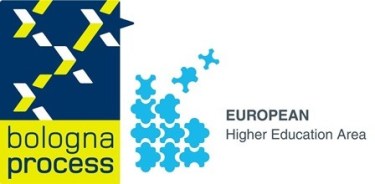 What is Bologna Process?*
What is Bologna Process?*
The Bologna Process is an intergovernmental cooperation of 48 European countries in the field of higher education. It guides the collective effort of public authorities, universities, teachers, and students, together with stakeholder associations, employers, quality assurance agencies, international organisations, and institutions, including the European Commission, on how to improve the internationalisation of higher education. The main focus is the introduction of the three cycle system (bachelor/master/doctorate), strengthened quality assurance and easier recognition of qualifications and periods of study
Why is it needed?*
Widely differing education and training systems in Europe have traditionally made it hard for Europeans to use qualifications from one country to apply for a job or a course in another. Increased compatibility between education systems makes it easier for students and job seekers to move within Europe. At the same time, the Bologna reforms help to make European universities and colleges more competitive and attractive to the rest of the world. The Bologna Process also supports the modernisation of education and training systems to make sure these meet the needs of a changing labour market. This is important as the proportion of jobs requiring high skills grows, and the demand for innovation and entrepreneurship increases.
What has been done so far?*
A lot of progress has been made in implementing the reforms, as shown by the regular reports. In May 2018, the Education Ministers met in Paris and adopted a 'Communiqué' on their priorities for the coming years. The Paris Communiqué outlines the joint vision of the 48 ministers for a more ambitious European Higher Education Area beyond 2020, calling for:
- an inclusive and innovative approach to learning and teaching;
- for integrated transnational cooperation in higher education, research and innovation;
- for securing a sustainable future for our planet through higher education.
The Communiqué calls for stronger, better support for under-represented and vulnerable groups to access to and excel in higher education. These ambitions are in line with the goals of the EU, which is going to step up efforts to support those who wish to be more ambitious, to move faster and do more to achieve the objectives of "recognition for all" and "mobility for all" by creating a European Education Area.
Who are the members?*
A list of the participating countries is available on the website of the EHEA.
*https://ec.europa.eu/education/policy/higher-education/bologna-process_en